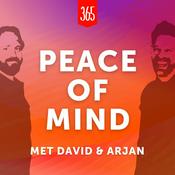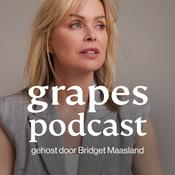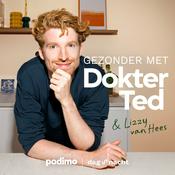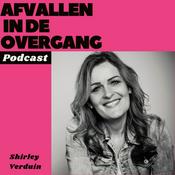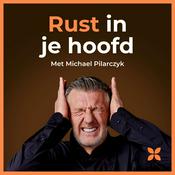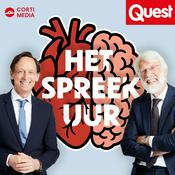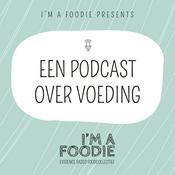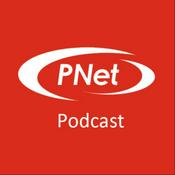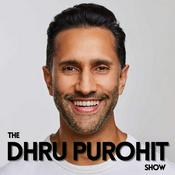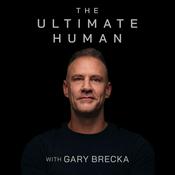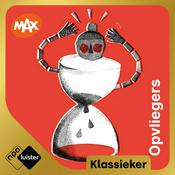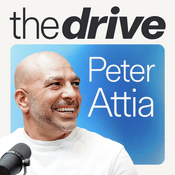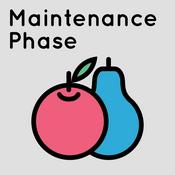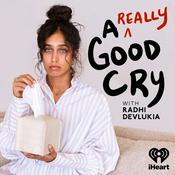The PedsDocTalk Podcast: Child Health, Development & Parenting—From a Pediatrician Mom
Dr. Mona Amin
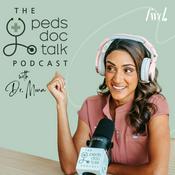
Nieuwste aflevering
379 afleveringen
- Feeding choices carry an enormous emotional weight for new parents, often shaped more by online narratives and cultural pressure than by balanced evidence. In this conversation, we unpack formula guilt, breastfeeding myths, and how distorted risk messaging fuels shame. We talk about how understanding research in context can help parents move away from fear-based thinking and toward informed, values-based decisions that support both parent and baby.
The episode also explores the long-term impact of early feeding shame on maternal confidence. Feeding is often the first major parenting decision, and how a parent navigates it sets the tone for future choices. We focus on strengthening self-trust, rejecting stigma, and recognizing that child outcomes are driven by complex environmental and social factors, not a single feeding method.
What we discussed:
Why parents feel guilt around formula feeding
How online activism shapes feeding narratives
Evaluating whether sources of information are trustworthy
Misleading statistics and risk exaggeration
Relative risk vs absolute risk in infant illness
The psychological harm of formula shaming
Why stress can worsen milk supply struggles
Breastfeeding benefits in realistic context
Why breastfed babies still get sick
The role of environment and exposure to germs
Myths about allergies, IQ, and milestone differences
How child development is multifactorial
Socioeconomic factors in feeding research
Sibling comparison studies and feeding outcomes
Why shame damages maternal bonding
Strengthening decision confidence early in parenting
Owning feeding choices without apology
How openness reduces stigma for other parents
Modeling self-trust for the parenting journey
Letting go of guilt about long-term outcomes
Want more? Listen to the full, original episode.
Check out Mallory's new book, "Bottle Service": https://www.amazon.com/Bottle-Service-Encouragement-Guilt-Free-Successful/dp/1668088762
Our podcasts are also now on YouTube. If you prefer a video podcast with closed captioning, check us out there and subscribe to PedsDocTalk.
Get trusted pediatric advice, relatable parenting insights, and evidence-based tips delivered straight to your inbox—join thousands of parents who rely on the PDT newsletter to stay informed, supported, and confident. Join the newsletter!
And don’t forget to follow @pedsdoctalkpodcast on Instagram—our new space just for parents looking for real talk and real support.
We love the sponsors that make this show possible! You can always find all the special deals and codes for all our current sponsors on the PedsDocTalk Podcast Sponsorships page of the website.
Learn more about your ad choices. Visit podcastchoices.com/adchoices - If mealtimes feel heavier than they should, this episode is going to make a lot click. I sit down with dietitians Diana and Dani to unpack how diet culture quietly slips into everyday parenting and shapes how kids see food, their bodies, and themselves. Their new book offers a roadmap for raising kids who trust their bodies and feel safe at the table, and our conversation goes far beyond picky eating. We talk about the language we use, the pressure we don’t realize we’re applying, and how small daily moments build a child’s long-term relationship with food.
What we discuss:
Why diet culture starts affecting kids as early as preschool
The “invisible curriculum” kids absorb from our modeling, messaging, and moments
What food positivity actually means and how it goes beyond food neutrality
How the Division of Responsibility supports trust and self-regulation
Common ways parents accidentally misapply feeding advice
Why labeling foods as good or bad backfires long term
The connection between pressure, restriction, and future dieting patterns
Reframing picky eaters as “learning eaters”
Why fewer than 5 percent of so-called picky eaters are truly nutrient deficient
How values like control vs connection influence feeding decisions
Small shifts parents can make to protect a child’s relationship with food
To connect with Diana Rice follow her on Instagram @anti.diet.kids and check out all her resources at https://tinyseednutrition.com/
Follow Dani Lebovitz at @kid.food.explorers and visit her website: https://kidfoodexplorers.com/
Their new book “Food Positivity: How to Ditch Diet Culture and Talk to Kids About Food“ is available for pre-order https://www.amazon.com/Food-Positivity-Ditch-Culture-About/dp/1394335202?&linkCode=sl1&tag=dianakrice-20&linkId=cb9fdb7069f2f96a3f795cbd75485914&language=en_US&ref_=as_li_ss_tl
Enjoy Diana Rice’s first episode, “Your kid doesn’t need a diet“ on the PedsDocTalk podcast. https://pedsdoctalk.com/podcast/your-kid-doesnt-need-a-diet-approaching-conversations-about-our-childs-weight-and-health-in-a-productive-way/
00:00 Welcome + What Is Food Positivity?
02:29 Meet Diana and Dani
04:24 How Diet Culture Starts in Early Childhood
06:09 The Invisible Curriculum: Modeling, Messaging, Moments
07:59 Food Positivity vs Food Neutrality
14:43 Division of Responsibility Made Simple
18:59 Why Red Light, Green Light Backfires
20:15 Felt Safety, Trust, and Confident Food Leadership
33:22 Rethinking “Picky Eating” as Learning Eating
38:10 Pressure, Restriction, and Self-Regulation
42:01 Small Shifts to Protect Your Child’s Relationship with Food
48:43 Where to Get the Book + Final Takeaways
Our podcasts are also now on YouTube. If you prefer a video podcast with closed captioning, check us out there and subscribe to PedsDocTalk.
Get trusted pediatric advice, relatable parenting insights, and evidence-based tips delivered straight to your inbox—join thousands of parents who rely on the PDT newsletter to stay informed, supported, and confident. Join the newsletter!
And don’t forget to follow @pedsdoctalkpodcast on Instagram—our new space just for parents looking for real talk and real support.
We love the sponsors that make this show possible! You can always find all the special deals and codes for all our current sponsors on the PedsDocTalk Podcast Sponsorships page of the website.
Learn more about your ad choices. Visit podcastchoices.com/adchoices - Sleep training is one of the most emotionally charged parenting topics online, and this conversation pulls it back to what actually matters, evidence. We talk about how social media amplifies fear and confusion, why parents are told to “trust” personalities instead of data, and how looking directly at research helps cut through the noise. While opinions are loud, the body of evidence around behavioral sleep interventions is far less controversial than the internet suggests.
We also walk through what the data says about timing, safety, and developmental readiness. From common myths about brain development to the fear of letting a baby cry, this episode centers on nuance. Sleep training is not all-or-nothing, not one rigid method, and not a replacement for parenting. It is a flexible set of tools families can adapt based on temperament, comfort, and goals.
What we discussed:
Why social media creates confusion around sleep training
The importance of trusting research over personalities
What the literature says about behavioral sleep interventions
Why there is less scientific debate than people think
Typical age ranges supported by evidence, around 4 to 6 months
Developmental readiness and self-soothing ability
The difference between sleep training and night weaning
Why babies vary widely in temperament and sleep patterns
The myth about prefrontal cortex development
Why infants are capable of learning sleep skills
Fear-based messaging and misuse of scientific language
How parental anxiety gets amplified by misinformation
Modifying sleep training methods to match family comfort
Graduated extinction, parental presence, and flexible approaches
The role of compromise between caregivers
The core goal, helping a child fall asleep without active intervention
Why sleep training does not replace responsive parenting
Want more? Listen to the full, original episode.
Our podcasts are also now on YouTube. If you prefer a video podcast with closed captioning, check us out there and subscribe to PedsDocTalk.
Get trusted pediatric advice, relatable parenting insights, and evidence-based tips delivered straight to your inbox—join thousands of parents who rely on the PDT newsletter to stay informed, supported, and confident. Join the newsletter!
And don’t forget to follow @pedsdoctalkpodcast on Instagram—our new space just for parents looking for real talk and real support.
We love the sponsors that make this show possible! You can always find all the special deals and codes for all our current sponsors on the PedsDocTalk Podcast Sponsorships page of the website.
Learn more about your ad choices. Visit podcastchoices.com/adchoices Dr. Paul Offit on the State of Vaccines in America and What Parents Need to Understand Now
11-2-2026 | 51 Min.This episode is one of the most important conversations I’ve had about vaccines. I sit down with a leading vaccine expert to slow down the noise and talk honestly about where we are right now in America. We discuss how vaccines went from one of the greatest public health successes in history to something many families feel unsure about, and what that shift means for children. This is not about politics or headlines. It’s about what I see as a pediatrician, what clinicians across the country are experiencing, and why protecting kids still has to be the center of the conversation.
We talk about fear, misinformation, and the very real consequences of falling vaccination rates. I share personal stories from training and practice that still stay with me, and we unpack how trust eroded, how Covid changed the landscape, and what parents deserve to understand moving forward. My hope is that this episode helps families step back from the chaos and reconnect with the core goal we all share: keeping children safe, healthy, and out of hospitals whenever we can.
What we discuss:
The current state of vaccines in America
Why vaccines are a victim of their own success
How misinformation spreads faster than evidence
Turning points that eroded public trust in vaccines
The impact of Covid on vaccine perception
Real clinical consequences of falling vaccination rates
Stories of vaccine-preventable illness from practice
Why personal choice affects community safety
Changes to vaccine recommendations and public messaging
What parents should understand about risk vs benefit
To connect with Paul Offit follow him on Instagram @pauloffitmd and check out all his resources at https://www.paul-offit.com/
00:00 Opening Message: The Real Risk of Skipping Vaccines
02:12 Meet Dr. Paul Offit
03:30 The Current State of Vaccines in America
05:04 Vaccines Are a Victim of Their Own Success
06:12 Why We Still Need Vaccines for “Rare” Diseases
08:27 Where Modern Vaccine Distrust Began (1982 Turning Point)
10:34 Pandemic Fallout and Vaccine Hesitancy
12:02 Frontline Stories from COVID
15:06 Denial in the Face of Evidence
17:11 How Vaccine Communication Should Change
19:00 Operation Warp Speed and Scientific Breakthrough
21:13 Politics and Public Health History
23:18 Measles Deaths Are Not “The Cost of Doing Business”
25:20 Medical Freedom vs Public Responsibility
28:23 Schedule Changes and Shared Decision Making
32:49 Life Before Rotavirus Vaccine
34:02 RSV Breakthroughs and Modern Progress
38:31 The Emotional Toll of Vaccine Misinformation
40:02 Residency Stories: When Prevention Fails
43:30 A Message to Vaccine-Hesitant Parents
45:35 What Keeps Dr. Offit Fighting
47:04 Final Takeaway: Vaccines Succeeded So We Forgot
Our podcasts are also now on YouTube. If you prefer a video podcast with closed captioning, check us out there and subscribe to PedsDocTalk.
Get trusted pediatric advice, relatable parenting insights, and evidence-based tips delivered straight to your inbox—join thousands of parents who rely on the PDT newsletter to stay informed, supported, and confident. Join the newsletter!
And don’t forget to follow @pedsdoctalkpodcast on Instagram—our new space just for parents looking for real talk and real support.
We love the sponsors that make this show possible! You can always find all the special deals and codes for all our current sponsors on the PedsDocTalk Podcast Sponsorships page of the website.
Learn more about your ad choices. Visit podcastchoices.com/adchoices- Motherhood can quietly shift the emotional balance in a partnership. In this conversation, we explore why resentment toward a partner is so common after having a baby and why it is not a personal failure, but a researched, predictable relationship stress point. The transition to parenthood often exposes invisible labor, unequal expectations, and emotional strain that many couples were never taught how to name, let alone fix.
We also talk about practical starting points for repairing connection. From making invisible labor visible, to changing how conflict is communicated, this episode focuses on teamwork, fairness, and ongoing conversations that prevent resentment from hardening into distance. The goal is not perfection or 50-50 equality, but shared understanding and intentional partnership.
What we discussed:
Why resentment often grows after becoming parents
The emotional and physical load many mothers carry
Research showing relationship dissatisfaction in the first year postpartum
How partnership dynamics affect postpartum mental health
The concept of making invisible labor visible
Dividing responsibilities in a way that feels agreed upon, not forced
Why equality is not always 50-50, but fairness still matters
Separating the partner from the problem
Communicating needs without blame or accusation
How suppressed resentment turns into bitterness
The value of weekly relationship check-ins
Addressing partners who resist conversations about workload
Explaining impact instead of arguing details
How shared labor improves emotional and physical intimacy
Why connection is built through everyday support, not grand gestures
Want more? Listen to the full, original episode.
Our podcasts are also now on YouTube. If you prefer a video podcast with closed captioning, check us out there and subscribe to PedsDocTalk.
Get trusted pediatric advice, relatable parenting insights, and evidence-based tips delivered straight to your inbox—join thousands of parents who rely on the PDT newsletter to stay informed, supported, and confident. Join the newsletter!
And don’t forget to follow @pedsdoctalkpodcast on Instagram—our new space just for parents looking for real talk and real support.
We love the sponsors that make this show possible! You can always find all the special deals and codes for all our current sponsors on the PedsDocTalk Podcast Sponsorships page of the website.
Learn more about your ad choices. Visit podcastchoices.com/adchoices
Meer Gezondheid en fitness podcasts
Trending Gezondheid en fitness -podcasts
Over The PedsDocTalk Podcast: Child Health, Development & Parenting—From a Pediatrician Mom
The PedsDocTalk Podcast is your go-to parenting resource, hosted by Dr. Mona Amin, a trusted pediatrician, parenting expert, and mom of two. As a top 30 Parenting Podcast in the U.S., this show delivers expert-backed guidance on child development, health, illness, behavior, feeding, and sleep—giving parents the confidence to navigate every stage from baby to teen.
Each episode dives into real-life parenting challenges, featuring conversations with specialists in pediatrics, child psychology, nutrition, and parental well-being. From potty training and sleep training to tackling tantrums, picky eating, discipline, screen time, postpartum recovery, and developmental milestones, Dr. Mona provides practical, science-backed advice that actually works.
Tune in on Mondays and Wednesdays for actionable insights, mindset shifts, and expert interviews that empower you to raise healthy, resilient, and happy kids—while thriving as a parent yourself!
Podcast websiteLuister naar The PedsDocTalk Podcast: Child Health, Development & Parenting—From a Pediatrician Mom, Peace of Mind en vele andere podcasts van over de hele wereld met de radio.net-app

Ontvang de gratis radio.net app
- Zenders en podcasts om te bookmarken
- Streamen via Wi-Fi of Bluetooth
- Ondersteunt Carplay & Android Auto
- Veel andere app-functies
Ontvang de gratis radio.net app
- Zenders en podcasts om te bookmarken
- Streamen via Wi-Fi of Bluetooth
- Ondersteunt Carplay & Android Auto
- Veel andere app-functies


The PedsDocTalk Podcast: Child Health, Development & Parenting—From a Pediatrician Mom
Scan de code,
download de app,
luisteren.
download de app,
luisteren.

